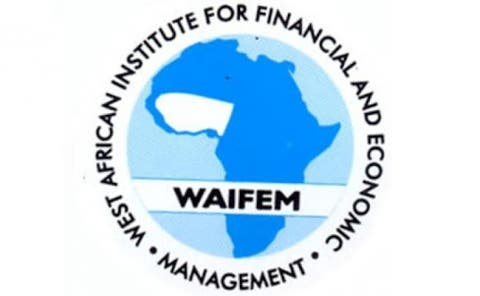The West African Institute for Financial and Economic Management (WAIFEM) has said the Nigerian government, especially at the state levels, is significantly challenged in the management of borrowing, debt recording, public financial management reform, and the development of debt management capacity.
WAIFEM also said the legal, regulatory and procedural frameworks for state borrowing are incomplete, and capacity limitations impede the efficacy and efficiency of public debt management. It said state government legislations in Nigeria do not adequately define the purposes of subnational borrowing or regulate the issuance of sovereign guarantees, posing substantial fiscal risks.
Director, monetary policy department at Central Bank of Nigeria (CBN) and member, technical committee of the board of governors of WAIFEM, Dr. Mahmud Hassan made the remarks yesterday at a joint World Bank/WAIFEM training workshop on the Subnational Debt Management Performance Assessment (SN-DeMPA) methodology.
“In general, state institutions lack sufficient capacity to execute their statutory obligations, and the increasing size and risk exposure of state debt portfolios underscores the urgent need for sound debt management practices and increased capacity among subnational government agencies,” Dr. Hassan said at the Abuja event.
Director general of WAIFEM, Dr. Baba Yusuf Musa said the the training is designed to provide in-depth knowledge in the methodology and operational modalities of the tool, rationale, scope, coverage, and application of World Bank introduced Government Debt Management Performance Assessment (DeMPA) tool and preparation of reform plans. DeMPA Tool is part of the armory for effective debt management performance.
The aim is to extend the assistance to state governments to enhance their debt management and maximize the benefits of public borrowing through capacity building to allow the country to reach even greater heights in embracing sound practices in public debt management.
“We felt it very necessary to improve the capacity of states who have acquired additional debt management as a result of COVID-19 and other shocks that affected the nation,” the WAIFEM DG stated.
It is expected, upon the completion of this course, that participants acquired a strong understanding of how to apply the DeMPA tool in assessing their state debt management performance and will also be able to apply the theory to specific state case studies.
Dr. Musa said the response of the states is overwhelming. 17 states are participating in the ongoing capacity building programme in the current module with two representatives each from a state plus the FCT. He said the remaining states would be called up to participate in similar training later in the year. The expectation is that states will improve their debt management henceforth.
He acknowledged that improved revenue generation is the best solution to debt, adding that Nigerian states must take concrete steps to improve revenue mobilization. Nigeria’s revenue to GDP ratio is among the lowest in the world. “What we have actually is a revenue problem rather than debt. So, if we are able to mobilise more revenue, we don’t really have any necessity to borrow,” he stated.
Dr. Hassan also expressed concern that countries are becoming more strained in terms of their ability to pay back even though the debt that is required to narrow the financing gap is just non avoidable. “But how do you manage to pay back, how do you manage the use of those debts? Borrowing is not necessarily bad, but what do you use it for and what is the cost benefit analysis of that fund you have taken?”
While there is sophistication and institutional framework at the federal level, Mahmoud said at the state levels, “you see that deficiency in terms of capacity, transparency and the institutional framework that is required to package all these. Most states actually rely on the federal government to do that.
The sub-nationals’ debt builds more into the federal government debt, which plays a large part of the nation’s total debt stock.





